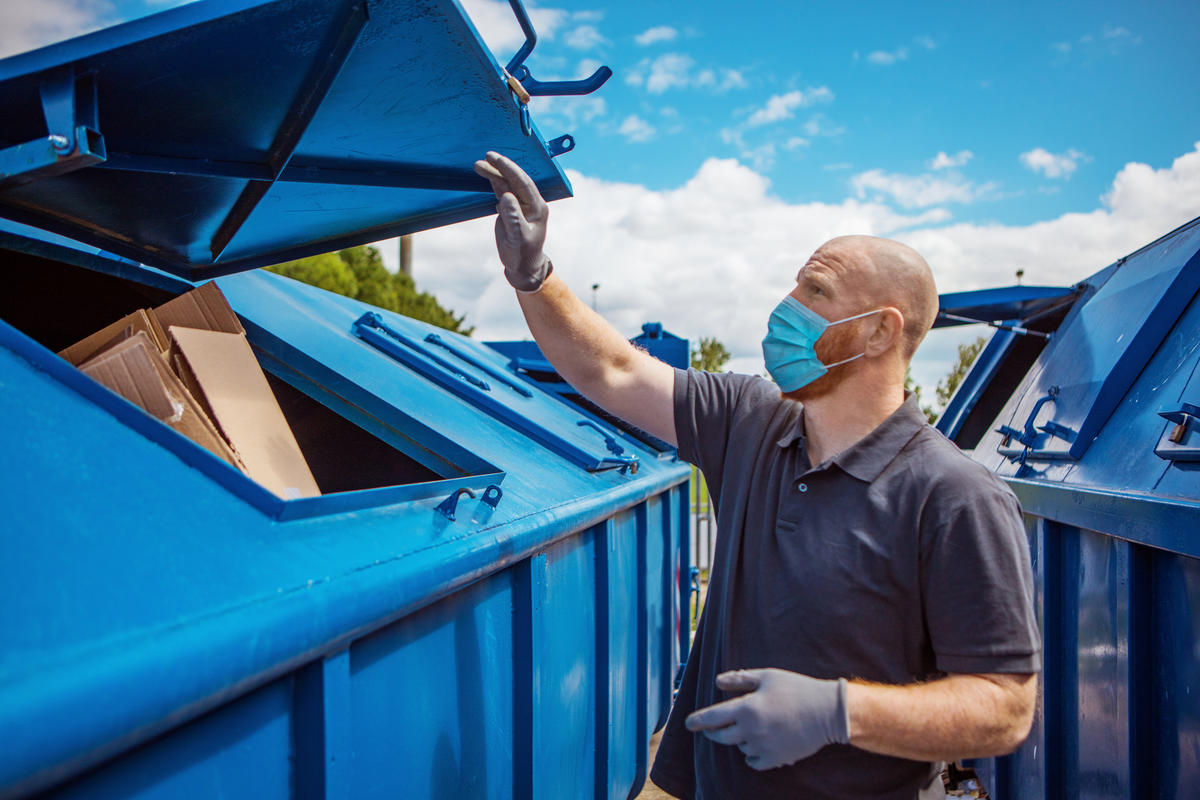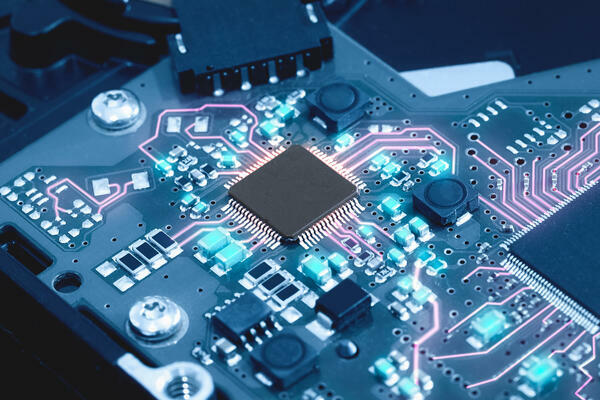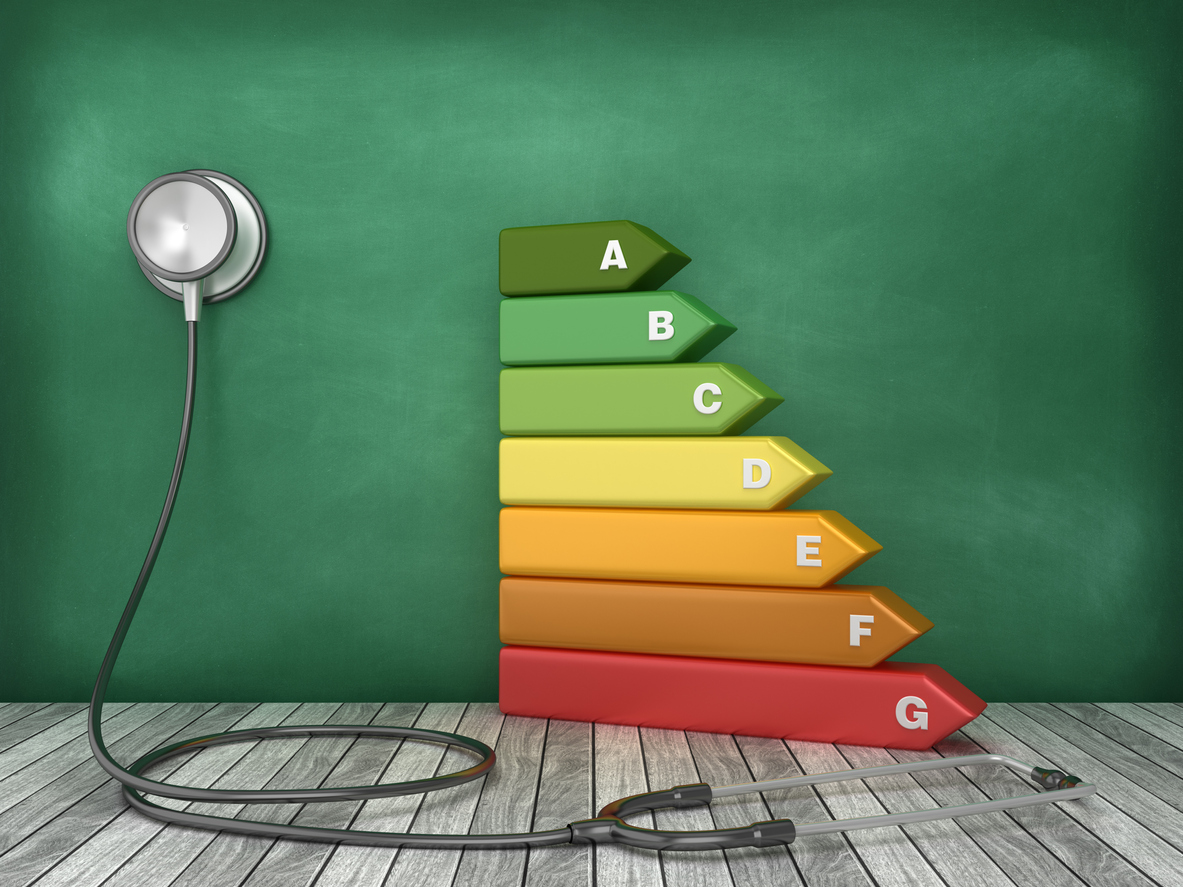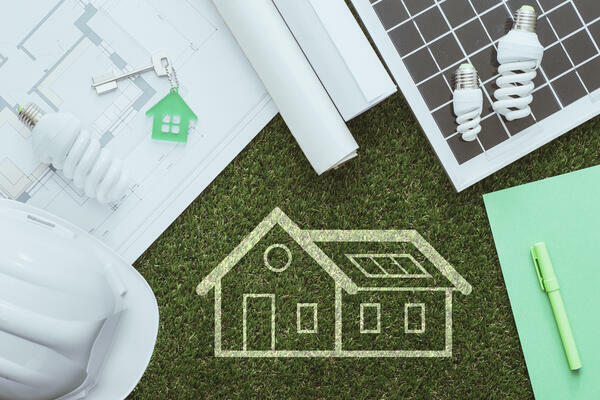
Environmental sustainability in estates management
General Waste Management

At LSTM have made considerable efforts to reduce non-recyclable waste through reforming practices and following the waste hierarchy principles of Prevention, Reduction, Re-use and Recycling. Nevertheless, some degree of non-recyclable waste is unfortunately unavoidable, and requires safe disposal ensuring our waste does not contribute to pollution and is compliant with all legislative requirements.
Since 2010 LSTM has had a zero waste to landfill policy. All our waste is processed by a Materials Recovery Facility, with approximately 65% of our monthly waste sorted into recyclable fractions; the remaining 35% is taken to a renewable fuels Energy from Waste plant where it is incinerated with energy recovery. The school has non-recyclable (general waste) and dry mixed recycling bins around all LSTM buildings in communal and open office areas since 2019. Office bins were banned in 2024.
Our confidential waste is managed by Shred-iT facility in Warrington, where it is recycled into copy paper or tissue paper. LSTM offices have 20 photocopiers across the school, and while we are encouraging staff to print and copy less, all old cartridges are collected by the RICOH returns service for reuse. Similarly, all waste batteries are taken to a recycling facility before they are broken down into their component metals for recycling. All sanitary waste, from bathrooms and nursing rooms, is collected by Shorrock Trichem Ltd, with data on usage returned to LSTM for auditing purposes. LSTM uses the waste contractor SUEZ for our white goods disposal e.g. fridge-freezers, and use CDL for our WEEE waste such as laptops and other computing equipment.
Electronics Procurement
LSTM staff use a wide range of technologies and hardware across many different areas. We are aware of the risks concerning the manufacture of electronics and human exploitation, and are committed to ensuring our procurement is transparent, and protects the rights of workers in supply chains. LSTM is a full member of the North West Universities Purchasing Consortium (NWUPC) which became a consortium affiliate of Electronics Watch in 2019.

Green Energy and Efficiency Improvements

Committed to our transition to becoming a greener institution, in October 2020 LSTM switched from brown electricity – containing fossil fuels – to 100% certifiable renewable energy.
Committed to our transition to becoming a greener institution, in October 2020 LSTM switched from brown electricity – containing fossil fuels – to 100% certifiable renewable energy. Two of five LSTM buildings in the Liverpool Campus have on site renewable sources feeding to the electric grid (CTID building solar PV with Peak Power of 10.4 kWp and Pembroke House Peak Power of 27.54 kWp).
Water Usage

We have recently changed our water suppliers to improve the way we manage and monitor our water consumption. We have water monitoring systems installed in the buildings to detect leaks quickly. We aim to reduce 5% water use per staff and student by 2025 (from 2019 baseline).
Construction and Refurbishment
As LSTM grows, we are committed to ensuring any new buildings are developed with environmental and sustainable concerns at their centre. For each new building or development, we aim to achieve a BREEAM rating of very good were it is economically feasible . We incorporate environmental and or energy efficiency improvements whenever practicable such as replacement windows, improved insulation, LED lighting and improvements to the automated Building Management Systems.

Hazardous Waste Disposal
LSTM runs many laboratories and generates waste which needs disposing of carefully, including biological waste, clinical and infectious waste, GMO waste, radioactive waste, and chemicals.
Each of these waste categories is managed differently, adhering to all guidelines and regulations and overseen by individual safety managers. Heads of each laboratory group ensure that all staff and students are aware of policies, and that they have received the necessary training to safely manage and categorise this waste.
All hazardous waste generated at LSTM is disposed via competent contractors who comply with Environmental Agency guidelines.

Waste Auditing
LSTM is registered with the Environment Agency as a Hazardous Waste Producer, which is renewed each year. LSTM is careful to ensure that checks are made on all waste companies we work with, and on all sites used for waste disposal. The degree of scrutiny is based on an assessment of the risk posed by the various waste streams. For example, healthcare waste receives an annual site audit, including inspection of site and carriers’ licences and of the physical transport trail. These programme and audit reports are reported to the LSTM Health Safety and Environment Management Committee and filed in LSTM’s Facilities Office.
In addition to Duty of Care audits LSTM has a programme of internal and independent audits to observe compliance with all waste policies and associated procedures. Results of audits shared with relevant Group / Service Heads, who together ensure compliance and that where necessary steps can be taken to improve any areas of concern.

Sustainable Food
There are no food outlets and catering services such as canteens or food shops within LSTM estates. All outsourced services including catering and hospitality, follow LSTM Procurement Strategy and Procurement Processes, taking consideration of sustainability, social value, quality and price.
The Sustainability and Environment Committee has made continuous progress working with the LSTM Procurement Team to make outsourced food choices more sustainable. Vegetarian and vegan food options have been set up as default when ordering catering for internal meeting and events. We order Fairtrade tea, coffee and sugar where available, and we have removed plastic from our milk supply for internal meetings and social spaces. The school has introduced food waste collection which is sent for composting rather than to energy from waste treatment as general waste.